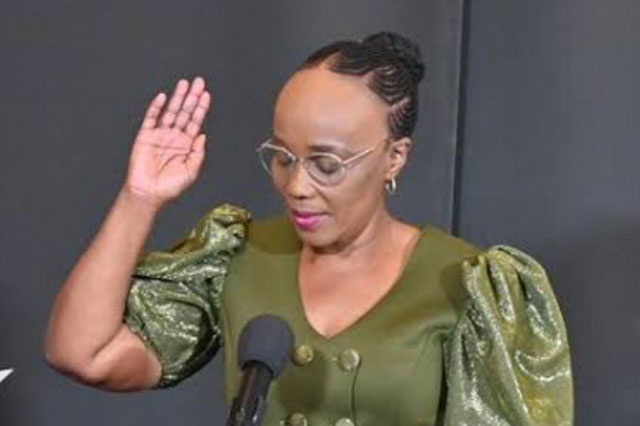Cape Town – The Public Procurement Bill, recently signed by President Cyril Ramaphosa, will help address the socio-economic exclusion of women, youth and persons living with disabilities, says Minister Sindisiwe Chikunga
As reported by SANews.Gov, the Minister of Women, Youth and Persons with Disabilities congratulated Ramaphosa for signing the Bill into law last month and outlined the department’s plans to use the legislation to implement measures for redress the exclusion of women from participating in the economy.
The Bill creates a single framework for public procurement across all State organs, focusing on efficiency and cost-effectiveness.
“As a department, we will be bringing forward tangible interventions through which this legislation will serve to redress the longstanding and ongoing socio-economic exclusion of women, youth and persons with disabilities,” she said, addressing a dialogue on Women, Democracy and Leadership at the University of South Africa (Unisa).
Women entrepreneurs set to experience increase in support
Chikunga noted the increase in women-owned businesses across sectors such as energy, tourism, agriculture, the ocean economy and manufacturing.
The Mastercard Index of Women Entrepreneurs (MIWE) ranks South Africa second in Africa – Botswana was ranked first – for the proportion of women-owned businesses and the formal support structures available to them. Additionally, the Global Entrepreneurship Monitor (GEM) Women’s Entrepreneurship Report highlights South African women as some of the most innovative and high-growth entrepreneurs globally.
“There is sufficient evidence that reaffirms the importance of women entrepreneurs in contributing to the overall productivity and transformation of our economy through diversifying industries, innovation, and fostering economic resilience.”
“In addition, women-owned businesses contribute to the creation of employment opportunities, promote inclusive supply chains, and stimulate local economies,” Chikunga said.
Women economic advancement on the continent
According to Central News , Chikunga highlighted the African Union’s Decade for African Women’s Financial Inclusion and Gender Equality, 2020–2030, which aims to improve women’s access to finance across Africa. The minister noted that limited access to finances impedes women’s socio-economic progress and their ability to control resources such as land, businesses and property.
Chikunga acknowledged ongoing challenges for women in accessing markets and global trade opportunities. She said, however, that the African Continental Free Trade Area Agreement (AfCFTA) offers a significant chance for African women to take part in global markets, which is crucial for their economic empowerment.
She said Africa should be its own major trading partner, and the demand for products within the continent presents opportunities for women to become suppliers. Chikunga called for collaborative efforts to pool resources, support women-owned businesses, and provide the skills and training needed to capitalise on AfCFTA opportunities.
More on the Public Procurement Bill below:


